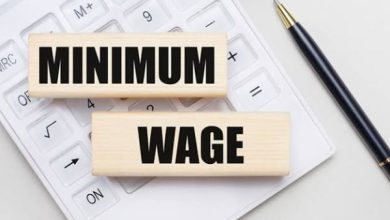Seven Office Mistakes You Should Avoid

Do you have a job? These 7 things must never be done while at your job.
Fighting your boss
This is one of the biggest mistakes ever anyone can make.
An HR expert based in Port Harcourt, Rivers State, Mrs Pearl Iriogbe, said it was a sin to disrespect one’s boss even when they were irritable.
She said, “You don’t fight your boss or engage in a hot argument with them. Even when a subordinate is right, it is improper to be at odds with one’s boss. It can cost anyone their job, even when they are brilliant and talented.
“Sometimes, you use diplomacy to deal with a superior. Even when you know they are wrong, don’t argue with them. It can be frustrating when one is always hammered by their boss, but while one is still at the company, one should apply wisdom.”
Exposed!! Popular Abuja doctor revealed how men can naturally and permanently cure poor erection, quick ejaculation, small and shameful manhood without side effects. Even if you are hypertensive or diabetic . Stop the use of hard drugs for sex!! It kills!
Talking about hating your job/company/boss
A writer and editor based in New York, United States of America, Kate Lopaze, said another workplace mistake anyone could make was talking about how much one hated one’s job, company or boss.
“Occasionally muttering ‘I hate this place’ under your breath at your desk is fine. But announcing it in a meeting or in front of colleagues is not okay. Letting everyone know how unhappy you are is only going to provoke one response: ‘Then why are you still here?’
“It will also tell your boss and your company that you don’t care anymore, which can work against you when it comes to raises, promotions, etc.
If you’re truly unhappy at your job, there are ways to manage that stress–not least of which is looking for a new job. You can do that without announcing your discontent, and avoid any awkwardness that might happen,” she wrote on thejobnetwork.com.
Lying
Lopaze also cautioned against lying at one’s workplace as it is not just a bad virtue, it can also cost one their job.
She said, “Whether it’s a little white lie about whether or not you responded to an email or a big honking falsehood you tell to cover up a mistake, just don’t do it.
“Your honesty is a huge part of your workplace reputation. If you’re caught in that lie (or worse, more than one), you’ve given your bosses and colleagues a reason not to believe anything you say.”
Being too political
Gbadamosi said there was no place where politics was not being played, cautioning against playing it too much.
He said, “If one plays office politics to the extent that everyone knows it, one will only be seen as a politician rather than a worker. Some employees play politics to the extent that they glaringly lobby for positions. If an employee knows their job well and has a good temperament, with patience, they will be recognised and rewarded.
“In today’s workplace, the virtues one should possess include transparency, openness and genuineness. If one manages relationships too politically, people will think one is fake or trying to cover up something.”
Blaming others for a team’s mistake
Lopaze identified shifting the blame on others as another costly workplace mistake.
She said, “The workplace can be a competitive atmosphere, especially depending on your industry. When things go wrong, it can be tempting to shift the blame to one of your coworkers so that they get the consequences from a mistake. But really, it’s just poor form, and trust me – you’re not pulling it off as subtly as you might think. It might get you out of the hot seat for now, but your boss (and possibly your colleagues) will know that you’re not someone who will take deserved blame along with the credit.
“Just about every professional evaluation survey I’ve ever seen has a question about whether the employee owns up to mistakes and handles them productively. Like dishonesty, deflective blame is something that can really damage your reputation. So when things go wrong, own up to your piece in it, and figure out how you can either help fix it, or prevent it in the future.”
Taking credit for things one didn’t do
Besides, taking credit for things one didn’t do is another workplace mistake.
“If you weren’t the one who stayed up all night on a project, don’t be the one who steps up to accept the laurels when credit and applause come from above. If the idea you floated in the meeting wasn’t exactly your own creation, make sure the person who did come up with it gets the credit.
“Don’t be like one of those comedians who get busted stealing others’ jokes…it’ll just undermine your support when you do have an awesome idea. No one wants to be known as the Milli Vanilli of their office,” Lopaze said.
Not learning from mistakes
Anyone can make a mistake; however, making it habitually can cost anyone their job.
According to a Lagos-based HR expert, Mr Godfrey Obong, it’s valuable if people learn from their mistakes.
Obong said, “You can make the same mistakes over and over again if you brush them off. By learning from mistakes the more, you can improve yourself and demonstrate more leadership.
“It’s not easy to control your actions, especially when they make you look foolish to others. But you can’t learn until you do. Adjust your definition of failure and remember that you are not the only one who makes mistakes in the workplace. Therefore, making mistakes is not bad, but repeating them.”




